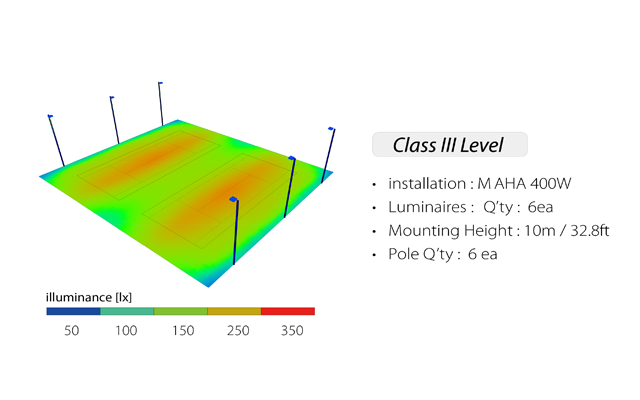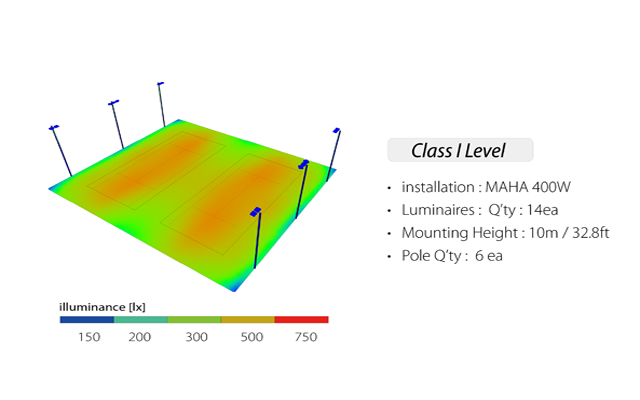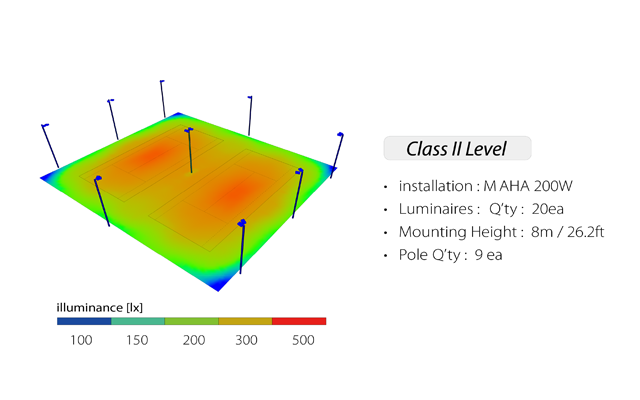Tennis
Home > Application Guide > Outdoor > Tennis
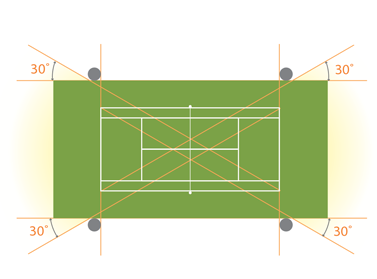
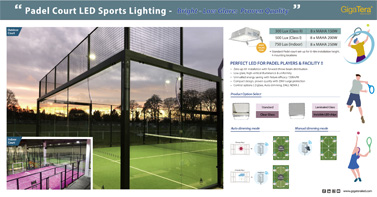
Lighting Design Criteria
- If the purpose is practice, the lighting can be placed on the ceiling, but avoid installing it near the end line so as not to interfere with the serve.
- When designing lighting for facilities that host general matches, arrange the lighting along the side lines, lighting should not to be installed in the central area of the court to make sure that the lobbed tennis ball does not intersect with the lighting
- When designing lighting for the recreational level of use, increase the uniformity luminance by designing an asymmetrical light distribution.
- Close areas should be designed with a straight angle but when illuminating over a long distance, use a narrow angle.
※ Tennis / Padel Court Solution
Recommendation of Minimum Lighting Levels
| Sport | Illuminance Level (Em. Horizontal) Lux * (Non CTV) | |||||
|---|---|---|---|---|---|---|
| ClassⅠ(USTA Class III) | ClassⅡ (USTA Class IV) | ClassⅢ | ||||
| Em (Lux) |
Uo (Min/ave) |
Em (Lux) |
Uo (Min/ave) |
Em (Lux) |
Uo (Min/ave) | |
| "Tennis / Padel" | 500(50fc) | 0.7 | 300(30fc) | 0.7 | 200(20fc) | 0.6 |
- ※ EN 12193 / USTA / ITF requirements
- - ClassⅠ: Top Level Competition
- - ClassⅡ: Intermediate Level Competition
- - ClassⅢ: Lower Level Competition & Suspervised Training
- ※ Em is the Maintained Illuminance Level (specification level) and is the design illuminance level, below which the lighting should not be allowed to fall during the period to planned maintenance.

